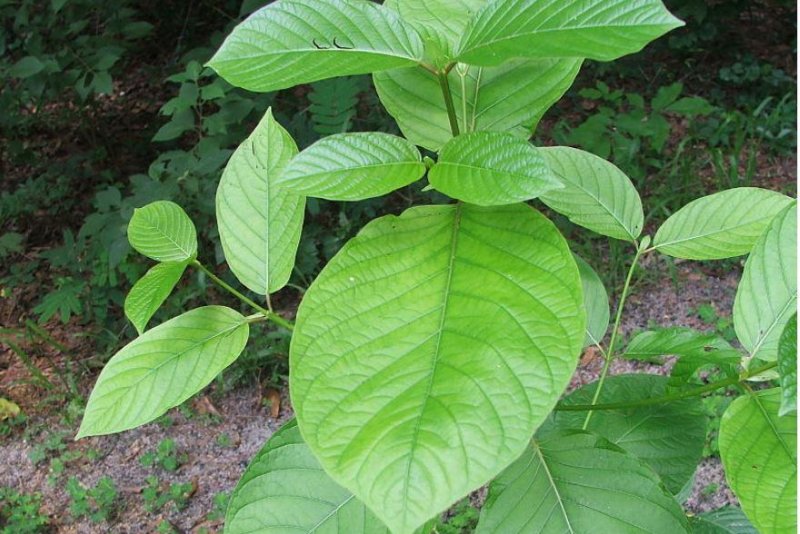Mitragyna speciosa, which is commonly known as kratom, is a plant that used in dietary supplements and also has been used as an alternative to opioid addiction and is used recreationally. On Tuesday, the FDA ordered the mandatory recall of products that include kratom, from the plant mitragyna speciosa, produced by Triangle Pharmanaturals. Photo by Uomo vitruviano/
Wikimedia Commons
April 3 (UPI) -- The Food and Drug Administration on Tuesday ordered the mandatory recall of all food products containing powdered kratom manufactured by Triangle Pharmanaturals after several tested positive for salmonella.
The order was issued after the Las Vegas company refused to comply with a voluntary recall. In addition, the FDA said its investigators were denied access to the company's records relating to potentially-affected products, and Triangle employees refused to discuss the agency's findings.
Kratom, or Mitragyna speciosa, is grown in Thailand, Malaysia, Indonesia and Papua New Guinea. Besides being used a dietary supplement, some people have used it recreationally or as an alternative to opioids.
The FDA is urging consumers to discard the products, including Raw Form Organics Maeng Da Kratom Emerald Green, Raw Form Organics Maeng Da Kratom Ivory White and Raw Form Organics Maeng Da Kratom Ruby Red. The FDA said Triangle Pharmanaturals may manufacture, process, pack and/or hold additional brands of food products containing powder and encapsulated powder forms.
The FDA has the authority to order the recall of certain food products under the FDA Food Safety Modernization Act in 2011.
"This action is based on the imminent health risk posed by the contamination of this product with salmonella, and the refusal of this company to voluntarily act to protect its customers and issue a recall, despite our repeated requests and actions," FDA Commissioner Dr. Scott Gottlieb said in a statement.
The FDA said two samples of kratom tested positive for salmonella that were sold at the store Torched Illusions in Tigard, Oregon, and were collected by the Oregon Public Health Division for study. Four additional samples also tested positive for salmonella.
The FDA on Feb. 21 urged the voluntary destruction and recall of dietary supplements that contain kratom by Divinity Products Distribution of Grain Valley, Mo.
On March 1, the Centers for Disease Control and Prevention reported that 87 people were infected with strains of salmonella in a 35-state outbreak. Twenty-seven people have been hospitalized.
On Tuesday, the FDA and CDC said 26 kratom-containing products have been tested and reported positive for salmonella.
"We continue to have serious concerns about the safety of any kratom-containing product and we are pursuing these concerns separately," Gottlieb said. "But the action today is based on the risks posed by the contamination of this particular product with a potentially dangerous pathogen."
The FDA has previously warned consumers not to use kratom because it apparently affects the brain in a way similar to opioids, and could expose users to dependency and addiction.
Gottlieb noted that claims kratom is benign because it's "just a plant" are "shortsighted and dangerous," as heroin comes from a plant as well.
Gottlieb at the time said the FDA documented 44 cases in which kratom was involved in a death.
"We recognize that many people have unmet needs when it comes to treating pain or addiction disorders," he said. "For individuals seeking treatment for opioid addiction who are being told that kratom can be an effective treatment, I urge you to seek help from a healthcare provider. There are safe and effective, FDA-approved medical therapies available for the treatment of opioid addiction."















